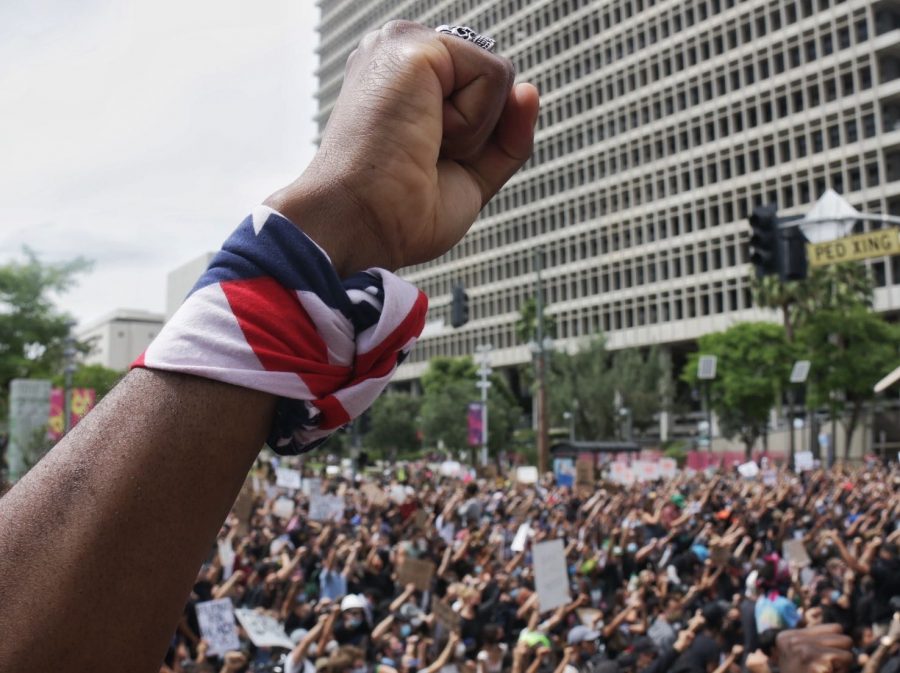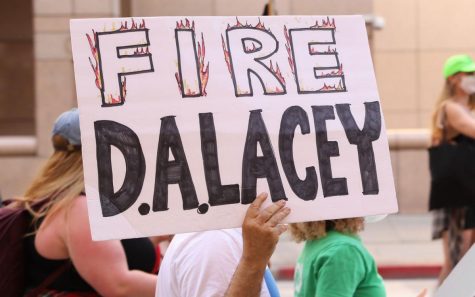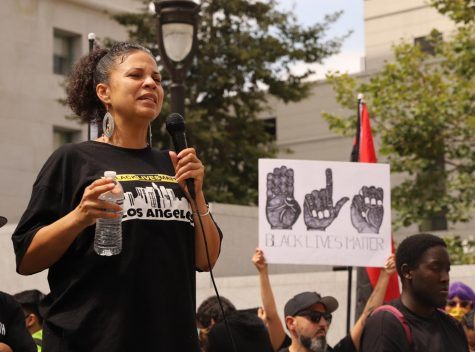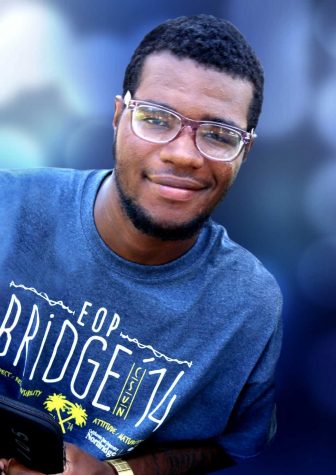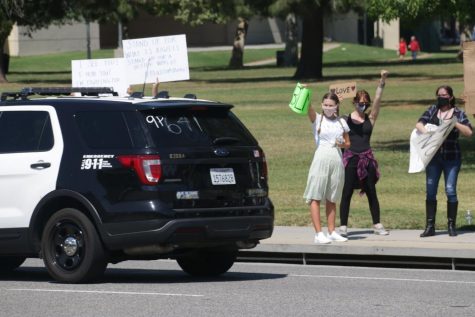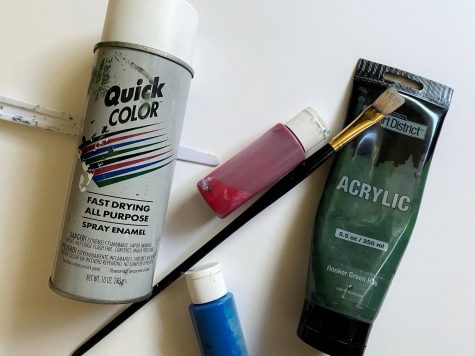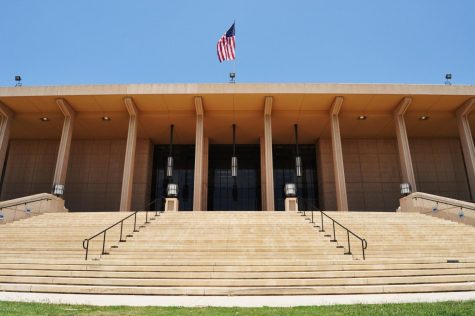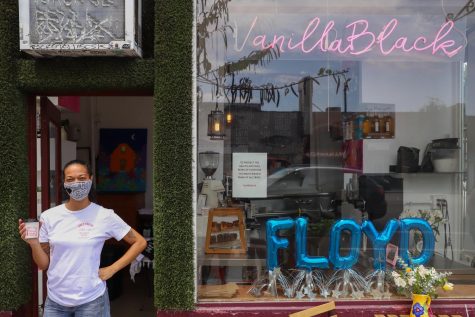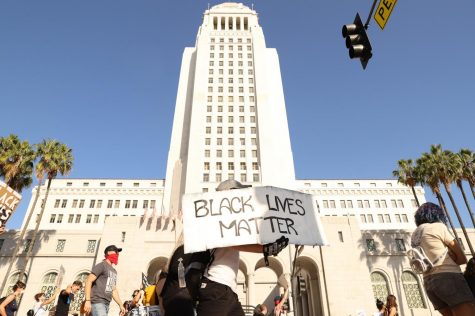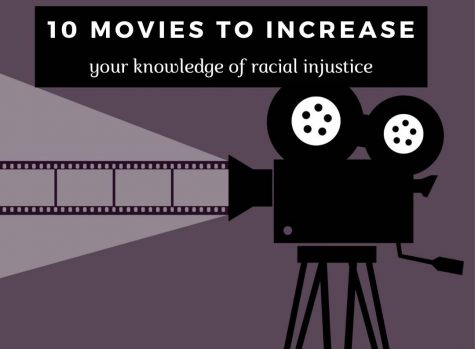Opinion: Being a Black journalist when Black lives finally start to matter
A protester holds up his fist as demonstrators hold a moment of silence for George Floyd outside of City Hall on May 31, 2020.
June 29, 2020
My whole life being Black and being a journalist remain in sync. I was a strange child. Some kids watched the “Teletubbies,” I watched the 5 o’clock news. My mom calls me nosy; I’d say I’m curious, especially when it comes to issues that I care about. I was raised in a household that taught me to put my Blackness before anything else — it’s a large part of my overall identity. I was the Black Student Union president in high school and I was a reporter in the school newspaper where I covered many issues about communities of color. I wanted our stories to be told so I figured why not tell them on my own?
Police brutality was nothing new to me when I heard about the deaths of George Floyd and Breonna Taylor. However, this instance felt different.
I was six when Sean Bell was killed the night before his wedding. I was eight when Oscar Grant was murdered on the subway in Oakland. I was 12 when Rekia Boyd was killed by an off-duty plainclothes officer. I was 13 when Sandra Bland mysteriously “committed suicide” in her prison cell. I was 14 when Eric Garner was the victim of a curbside execution. The examples go on and on. The déjà vu of the same story being told over and over has become quite unbearable. My reaction to every case is simply, when will this end?
Conversations around how to act in the presence of police started early growing up in a Black household.
The difference I felt with the deaths of Floyd and Taylor was interesting. We all saw Floyd take his last breath. We witnessed a modern-day lynching over and over again whenever we unlocked our phone screens. As additional information came, the situation got worse and worse. We saw his daughter holding a picture of her father, who was taken away from her. We heard anecdotes from the shop owners saying how great a man Floyd was. We heard about Taylor being asleep when she was shot. We found out she was an EMT; she was saving lives and had hers taken away prematurely. We found out Kenneth Walker, Taylor’s Boyfriend, fired a single round in hopes of protecting Taylor from burglars but ultimately, that was why she lost her life. We found out there were no illegal drugs found in the house and finally, we now know the police lied to get a warrant to enter.
This cut deep for me. I was furious. I’m tired of this happening, but there was no time to mourn. I have a job to do. It’s my job to tell their stories because they deserve justice and my people have a right to live. Taylor could have been me. Floyd could have been my brother. These were additional reminders to hold my loved ones even closer because being a Black person in America your days aren’t always promised.
When my Editor-in-Chief expressed interest in covering this public outcry for justice, I was all hands on deck. However, I soon found myself thinking, “Am I doing enough through my job? Shouldn’t I be out here protesting and stopping racism like everyone else? Why am I watching from the sidelines asking for quotes about anger when I feel the same way?”
I found myself covering protests and being so taken aback by the culture and agenda of those protesting that I questioned my job as a journalist. I began to recognize my privilege. I was with the movement and the cause, but when it was time to show my press pass and get out of the situation, I was going to do so. It felt extremely wrong.
It’s a weird feeling being both a spectator and storyteller framing a narrative that is my own.
I had to do some self-evaluating. I’m trained to shed light on stories and people. But when reporting on Black death, what is a Black journalist to do?
The Sundial editorial statement really helped me dictate my path on this journey to find the middle ground between my two identities. As the editorial board was finding their direction on how to cover these protests, I was trying to figure out if I even belong out there as a journalist.
I have my answer; I do belong.
I realized lived experiences make stories better. I find myself twice as driven to tell a story in a new way, to defy status quos and amplify my people’s voices.
While I’m not out protesting hoping my voice is heard, the story I’m telling is just as effective. My voice will provide an understanding of what’s being fought for.
Journalism will eventually help to bring the equality that my nation’s founding documents promised.
After my evaluation, I realized one thing while I attended protests and spectated. I am not a spectator. I can advocate for change on my own. My space to do so is in the newsroom.
